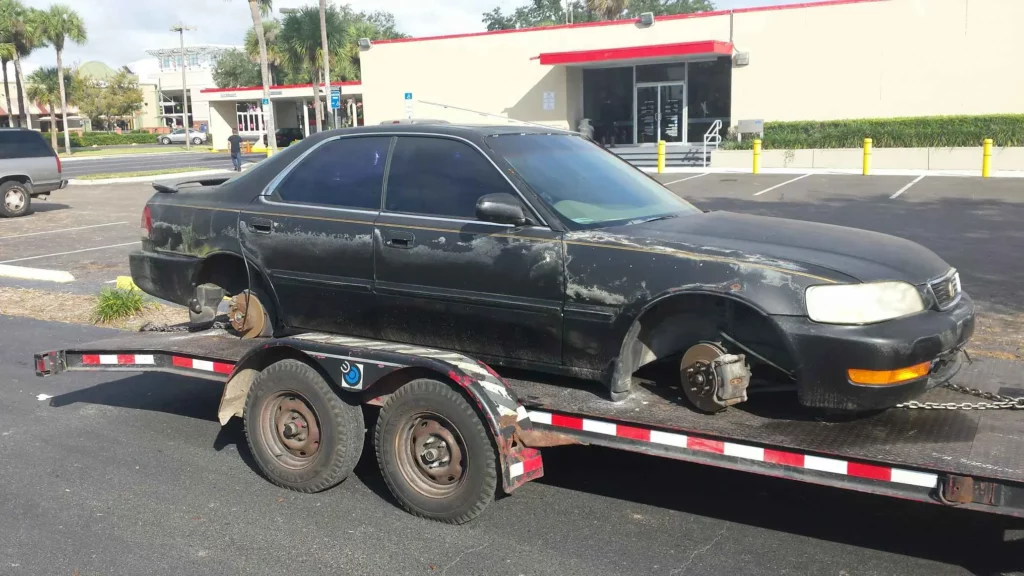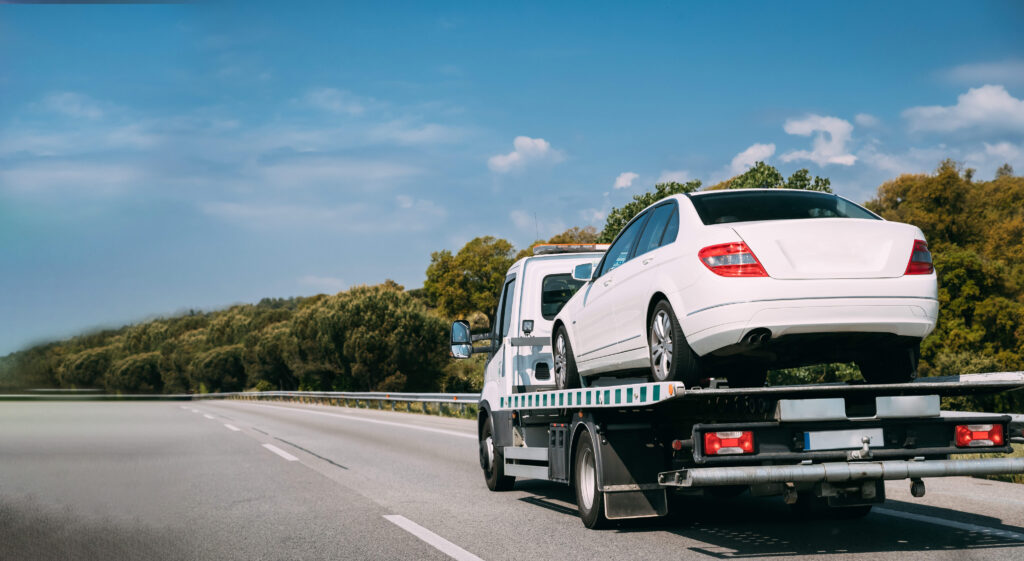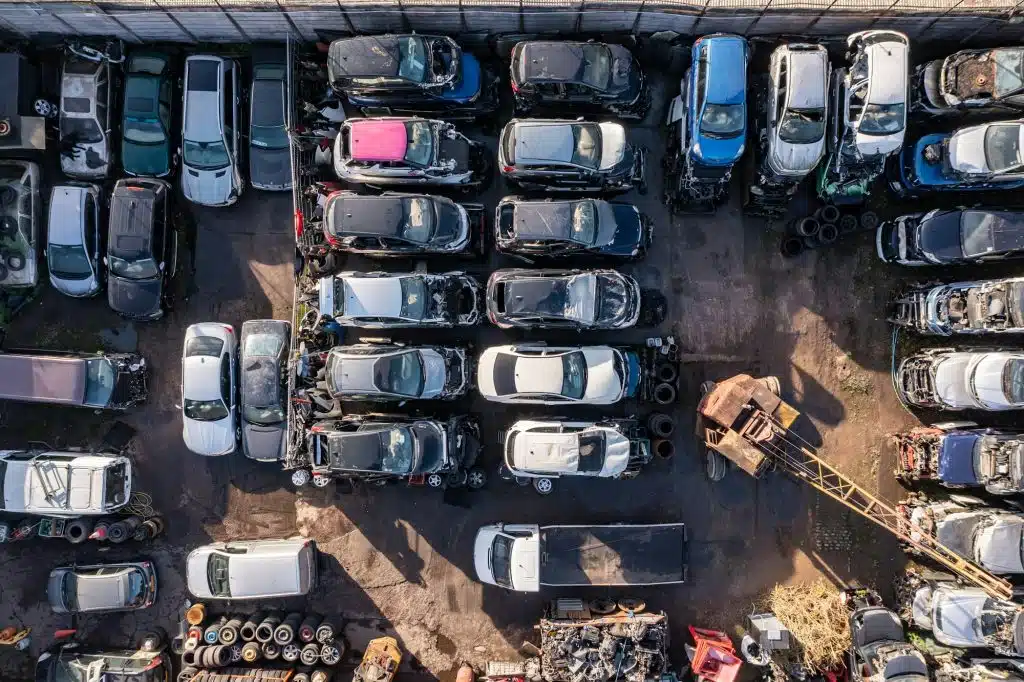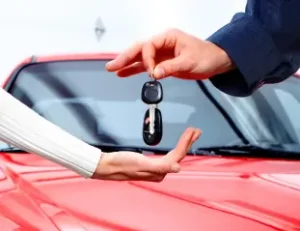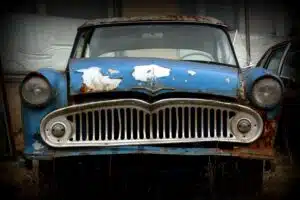Rust, faulty wiring, or worn-out parts make your vehicle unfit to be driven on roads?
A defective car in the driveway or garage eats up valuable storage space — while depreciating right in front of your eyes. Selling your car for scrap is a practical, financially sound, but getting shortchanged is surprisingly common.
To ensure you get the best deal (and avoid stressful legal complications), we curated a guide with insights into mistakes to avoid when selling a vehicle for scrap.
Common Mistakes to Avoid When Scrapping Your Vehicle
Ensure you’re getting the best scrap value for your car and streamline the sale process by watching out for these common blunders most sellers make:
Not Knowing Your Vehicle’s Value
Before selling a vehicle for scrap, research to get a clear picture of its worth. This will give you leverage to negotiate a selling price that reflects its market value.
Here are some factors that will help you get a rough estimate:
- Make, model, and year: Popular models with a strong road presence, like the Toyota RAV4, fetch higher prices due to greater demand for their parts.
- Current condition: Well-maintained vehicles in good working condition have a better scrap value, as they have salvageable components like engines, transmissions, catalytic converters, tyres, and rims that can be sold for a profit.
- Market rates for scrap metal: Much of the vehicle’s value is based on its metal content. Prices will thus fluctuate based on the supply and demand for recyclable and repurposable materials like steel, aluminium, and copper.
Not Choosing a Reputable Scrapping Center
New Zealand has a multi-million dollar scrap metal industry, so you’re guaranteed multiple options for disposing of your vehicle. This sounds great on paper but could cause decision fatigue—which can lead to difficulty making the right decisions.
The worst part? There’s more than poor pay on the table.
Some junkyards may not follow proper disposal or recycling procedures, which could bring legal consequences for the seller. Eliminate liability by selling to licensed companies with transparent processes and an extensive history of providing top-quality services in an environmentally responsible manner.
Going In Without A Valid ID
New Zealand has a pretty straightforward process for selling a vehicle for scrap.
You don’t need registration papers or comply with emission regulations when swapping metal for money. However, you must provide a government-issued photo ID (e.g. driver’s license) to prove ownership and ensure the transaction is legitimate.
Not Removing Personal Belongings
A vehicle can become an extension of one’s life, and it’s not uncommon for people to leave traces behind. Most people don’t realise that this could become a potential privacy or identity theft issue if anything left behind contains sensitive information.
And yes, that includes your GPS history.
Before giving your vehicle to the car removal company, check the glove compartments, boot, centre console, seat and door pockets, sun visors, and the area under the seats for personal belongings. Also, clear your navigation history to prevent misuse of your location data.
Failing to Deregister the Vehicle
It’s important to deregister your vehicle with the NZ Transport Agency (NZTA) before selling it for scrap to prevent potential misuse. You’ll need to complete an “Application to cancel registration” form (MR15) to remove the car from the road vehicle registry.
You’ll also be asked to surrender the number plates and labels as part of the process.
This process, which takes under seven days to complete, will make the vehicle unfit for driving on public roads—and thus no longer your responsibility (or liability).
Accepting the First Offer
Never go for the first offer—unless you’re dealing with a reputable company like Metro Car Removal and the offer is fair, in line with your research into its scrap value.
We say this because most scrap yards and car dealerships start with a low offer to maximise potential earnings, which means you may be leaving money on the table. To ensure you get the best possible price for your vehicle, carefully compare quotes from different car removal companies. Consider factors like reputation, payment method (cash or bank transfer), and pickup arrangements to make an informed decision.
Overlooking Hidden Charges
Some car removal companies may charge hidden fees to maximise their profits.
These can include:
- Towing is included in our services, but some companies may charge a fee to transport the vehicle to a designated facility—especially if it’s non-operational, as that requires specialised equipment like hook or stinger-lift trucks.
- Fuel surcharges occur when the vehicle’s location is far from the disposal facility.
To ensure it doesn’t eat into your payout, go through the terms and conditions in the contract with a fine tooth comb. You can also reach out to a company representative and ask them to provide a detailed pricing structure to avoid unexpected deductions.
Handing Over Your Car without Payment Proof
The scrap value of a vehicle is sometimes paid in checks—which can bounce, meaning you won’t get paid. At worst, it could also negatively affect your credit score.
At Metro Car Removal, we remove the risk by offering instant cash payments for scrapping unwanted vehicles. As soon as the deal is finalised, you’ll receive the agreed-upon price of the vehicle via your preferred mode of payment.
Forgetting to Cancel Insurance
Once you’ve received a Certificate of Destruction (CoD), you can cancel your insurance. Contact your insurer and inform them that you’ve sold your vehicle for scrap and want to cancel the policy to ensure you don’t pay for coverage you no longer need.
Before you call a customer service representative, review your insurance policy documentation. If you cancel your policy before its expiration, you may be able to request a refund of unused premium, calculated on a pro-rata basis.
And—speaking of making money off your vehicle—if you have pre-paid tolls [unused Road User Charges (RUC)], you can apply to have the unused credits refunded.
Call Metro Car Removal Services for A Smooth Sale
When selling a vehicle for scrap, you want to partner with a reliable company like Metro Car Removal to get the best deal for a ride you no longer need. Call us at 0800 769 040 for a smooth, fuss-free sale that puts money in your pocket quickly.
